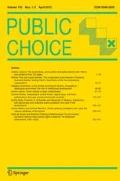 William Hague has caught the bug for democratic lottery. And he writes about it well. This simple sentence is a nice little microcosm. “Social media companies are poisoning the democratic world with the addictive spread of narrow and intemperate opinions.” Hear hear.
William Hague has caught the bug for democratic lottery. And he writes about it well. This simple sentence is a nice little microcosm. “Social media companies are poisoning the democratic world with the addictive spread of narrow and intemperate opinions.” Hear hear.
Writing about the proposal of sortition in Ireland seven years ago, Hague takes up the story.
This idea was met by considerable scepticism. The Irish opposition party of the time, Fianna Fail, thought that “an issue of such sensitivity and complexity” could not be dealt with adequately in this way. The chosen citizens would just reflect the existing deep divisions in society. They would not be sufficiently expert. A judge-led commission would have more expertise and carry more weight. That would be more “intellectually coherent”.
Yet the citizens’ assembly was established nonetheless, and over the following six months something fascinating and inspiring occurred. An appointed chairwoman and 99 “ordinary” people, chosen at random and therefore completely varied in age, gender, regionality and socioeconomic status, did a remarkable job. They adopted some commendable principles for their debates, including respect, efficiency and collegiality. They listened to 25 experts and read 300 submissions. They heard each other out and compromised more effectively than elected representatives.
The result was an overwhelming recommendation that the constitution should be changed, and a clear majority view that the relevant section of it should be deleted and replaced, permitting their parliament to legislate on abortion in any way it saw fit. This was later endorsed in a historic referendum. One of the country’s most intractable issues had been resolved clearly and decisively, in a way the political parties could not have managed and would not have dared. …
[Then after summarising some of the ways in which democracy is coming apart, Hague continues.] At a time when all these trends are turning people against their own compatriots and reducing debate to simplistic and unsubstantiated assertions, it has to be a source of hope that if you put 100 random people in a room with an important question and plenty of real information, they will often prove that democracy isn’t yet finished. They will listen patiently, think clearly and find solutions. Somewhere, in this gathering darkness of hatred, lies and opposing cultural identities, there are open-minded and constructive citizens willing to turn on a light.
He also notes how many of his fellow parliamentarians are against the idea. It’s easy to say that that would reduce their power, but in my experience it’s not nearly so simple. Politicians think their job is to come up with good policy. They do try, but the whole fabric of political life is keeping powerful people happy. But they live in hope. Perhaps one day more of them will realise that to actually do good policy you need allies. And a citizen assembly is a useful ally for a positive centrist government (from either the left or right), just as the accord was a very powerful ally for the Hawke and Keating Governments.
My one disappointment is that, Hague’s imagination does not run beyond the idea of citizen assemblies as bodies with only advisory power. But I would say that, wouldn’t I?
More here.
Filed under: Press, Sortition | 2 Comments »



 “Representative Democracy via Random Selection”,
“Representative Democracy via Random Selection”, 



 This is the yearly call for input for the year’s end review. As in previous years, I would like to have a post or two summarizing the ongoings here at Equality-by-Lot and notable sortition-related events over the passing year. Please respond in the comments below with your input. You are invited to refresh your memory about the events of the passing year by browsing Equality-by-Lot’s archives.
This is the yearly call for input for the year’s end review. As in previous years, I would like to have a post or two summarizing the ongoings here at Equality-by-Lot and notable sortition-related events over the passing year. Please respond in the comments below with your input. You are invited to refresh your memory about the events of the passing year by browsing Equality-by-Lot’s archives. Martin O’Leary, Studio Community Lead at Pervasive Media Studio, Watershed,
Martin O’Leary, Studio Community Lead at Pervasive Media Studio, Watershed, 